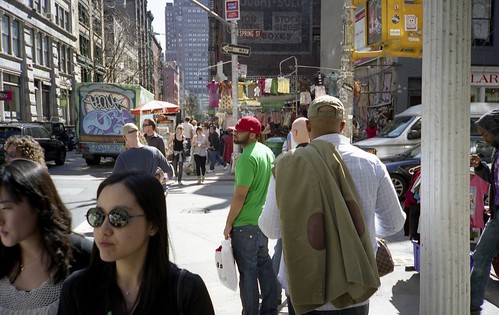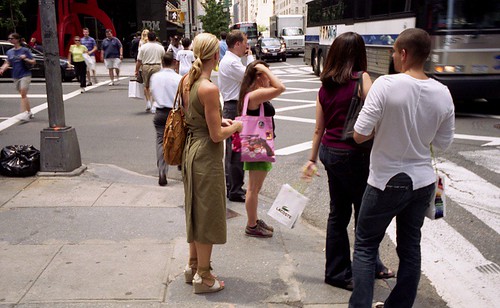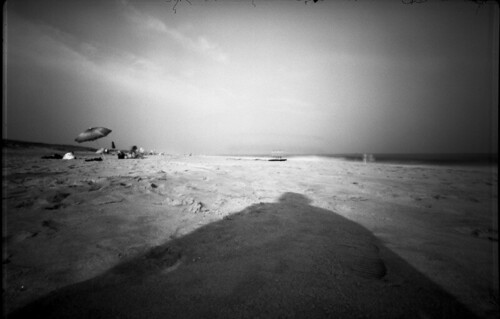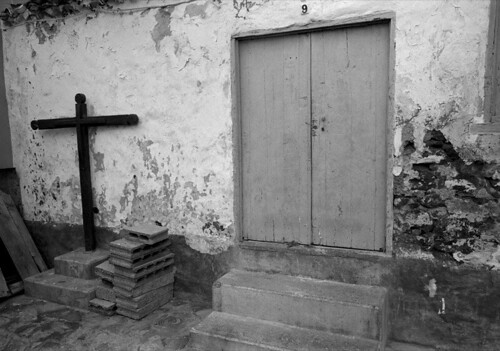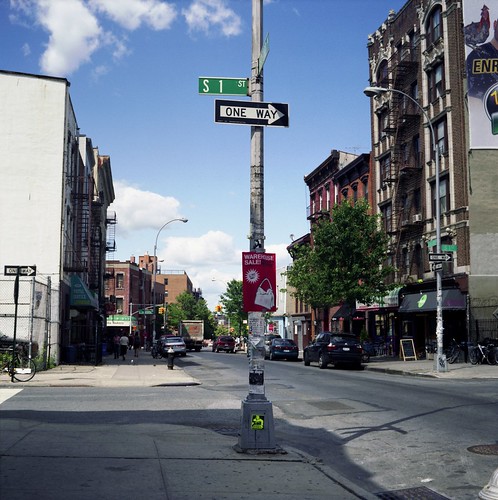
I am struggling to finish a Guggenheim application. There is something about congratulating oneself and asking for money simultaneously that feels well, like a Presidential candidate. No, not like a Presidential candidate. Maybe like a really sorry-assed rap star. Who is running for President. That's it. But these are the things poets do. The grant would be a tremendous honor, and the money would allow me to travel to the Philippines and visit the places my grandfather and his family, including my mother, were during their internment in a Japanese prison camp during World War II. My next project will use my grandfather's notebook kept while there, so seeing places personally would be a terrific asset. You see, I can't stop writing my grant proposal even now.
Tonight I listened to the Mets beat Atlanta again, and while I was worrying about Mota's inability to keep opposing batters from hitting RBI singles at will, I picked up Gerhard Richter's Atlas. I saw the show in London at the Whitechapel Gallery, and I was totally floored by it. One of those things that makes the Rilke poem, Archaic Torso of Apollo spring to mind.
We cannot know his legendary head
with eyes like ripening fruit. And yet his torso
is still suffused with brilliance from inside,
like a lamp, in which his gaze, now turned to low,
gleams in all its power. Otherwise
the curved breast could not dazzle you so, nor could
a smile run through the placid hips and thighs
to that dark center where procreation flared.
Otherwise this stone would seem defaced
beneath the translucent cascade of the shoulders
and would not glisten like a wild beast's fur:
would not, from all the borders of itself,
burst like a star: for here there is no place
that does not see you. You must change your life.
Part of the power of that poem is of course the turn that the end where the lyric description is end-stopped by a Zen-like crack of the bamboo on the back of "You must change your life." But for me, the best line is just preceding that: "for here there is no place/that does not see you." That's totally spooky, but I like it. I want that. I want to be able to see like that. Not only to see everything, but to not be able to not see everything.
In an earlier poem of my own, Death of a Tractor's Son, I was writing about the death of a farmworker who was carried out of the house into the fields by another person. It came from a moment spent talking to a farmer on the edge of his land in Charles City County, Virginia near the James River. He was one of those naturally poetic figures who spoke about the depression of being a farmer with a full-hearted love. When I sat down to write the poem, I found I couldn't remember what he had said exactly, but I could see it. So I tried to decribe what I saw with a made up epigraph:
If I ever see that white light
that comes up the back of the head
and lays out all sides of everything,
I'll lay down my tools.
I'll walk away.
What I like about Gerhard Richter is his sight. His ability to see everything. Sure, there is a Germanic organizational fetish that is a little scary (I once had a professor who told us about an epiphany he had when he realized the pristine level of organization that was whisking him speedily through Frankfurt airport to his waiting plane was the same organization that whisked people to the gas chambers during the Holocaust.) But beyond that is a vision that sees everything as important enough to organize it. To see it and keep it. To put it somewhere it can be found and used. Each photo in his Atlas is part of the lyric chain that leads to the denouement of his final expressions - his paintings. By looking at the photos in Atlas, you come to understand how he arrived upon the blurry black & white paintings, the smeared paintings, the portraits, the military paints, the gray paintings, etc. - all of these in their infancies were a moment in which a shutter clicked right after an eye saw something. Or just before.
And that's the real excitement for me in the conceptual expression that is the Atlas as exhibited. How many images? A lot - many rooms. It took me 2 or 3 hours just to feel like I had seen everything, and yet I could have stayed longer and seen more. But what I did see was perhaps the shadow of an eye - what gets projected upon it or through it - and a willingness to allow things to project and be seen without evident filters.
Of course, Richter is filtering things throughout Atlas. We don't see totally bad shots or every waking moment of his day. Still there is an openness to seeing everything - in the construction and in the presentation - that means a lot to someone who is trying to write poetry.
So what to write? Everything. What to photograph? Everything. As Wolfgang Tillmans' exhibition title said, "If one thing matters, everything matters." Quite a romantic notion, which is exactly why applying for things like the Guggenheim makes me feel like someone dropped sand in my shorts. It feels so much like the person who hasn't yet seen the archaic torse of Apollo or been elevated by Gerhard Richter. What good are these visions?
I operate from a position of resistance in nearly everything I do. Politics, art, academics. Poetry. I am frequently furious. Quite often rebellious. And yet, here I sit worrying that my Guggenheim grant application sucks. I am not sure I see well enough, and yet I see everything. I must change my life.
